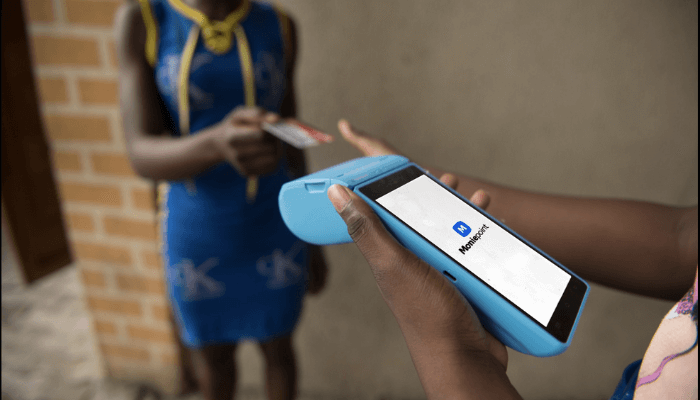Nigeria has over 42 million small business owners, and Moniepoint has embedded itself in the transaction process of many of these businesses.
Before making inroads into the agency banking it is now well known for, the firm was known as TeamApt and built banking infrastructures and Point of Sale (PoS) software for Nigerian banks from 2015 to 2019.
It later pivoted to agency banking after acquiring a switching license to operate as a payment platform. “Our journey into agency banking resulted from the challenges we noticed in account settlement and around the reconciliation process among merchants,” Edidiong Uwemakpan, Moniepoint’s vice president of Brand Communications and PR, told BusinessDay.
She noted that before, stores that used their PoS terminal for payment had issues with reconciling accounts. The firm was conscious of this challenge and decided to build an infrastructure to help solve it before developing its agency banking arm in 2019.
During the COVID-19 pandemic in 2020, the firm recorded its first peak as requests for its product surged. According to the Nigeria Inter-Bank Settlement System (NIBSS), Moniepoint is now the third-largest financial institution in outward transactions based on its instant payment gateway. The transactions for 400,000 businesses daily.
While many fintech companies would have preferred to recruit merchants directly, Moniepoint went in the reverse direction. It recruited people centrally positioned within communities and handed over the responsibility of onboarding merchants to them.
The thinking was that since the merchants were very well known to these people, they could establish trust quicker than outsiders working as Moniepoint staff. To guarantee the success of the people, the fintech provided incentives.
By the time TeamApt adopted the name of its flagship product in January 2023, Moniepoint had processed $10 billion worth of transactions for more than 400,000 businesses in 2022.
Today, the firm has different consumer-facing products, such as agency banking, business banking, online and offline payment gateways, and even personal banking, that have gone on to do massive numbers.
In a LinkedIn post, Tosin Eniolorunda highlighted that a 4M’s framework (mastery, membership, meaning, and money) are the four Ms.
He noted that finding meaning helps employees connect to a firm’s vision. In his post, Eniolorunda said that when people find it hard to push forward or engage in their work, even those they’re passionate about, “meaning provides the impetus to persevere.”
Mastery at Moniepoint means employees are encouraged to pursue excellence, he highlighted. According to him, membership has created an interesting phenomenon within and outside the fintech where PoS agents and customers paying for things at supermarkets now prefer the firm’s product.
However, the company believes that even when employees have the vision, feel included, and are knowledgeable about their jobs, money will always be an important incentive.
“It is not just about the numbers on a paycheck; it’s about empowering our employees to lead financially secure lives, contributing to a positive workplace culture,” Eniolorunda added.
Aside from its core business, the fintech also tries to empower its agents with financial literacy. It announced that it had over 640,000 mobile money agents in August. These agents are not managed by the firm’s staff directly. The company’s relationship managers are responsible for interacting with merchants and agents. This system makes it possible to escalate issues when necessary, providing fuller local support.
“There are also internal assessment and early warning systems to help detect challenges before they get out of hand. A dedicated team, Moniepoint’s Learning and Development, ensures that the relationship managers are up to speed on pertinent issues weekly. The team achieves this through an online portal and frequent physical training,” Uwemakpan, Moniepoint’s VP, added.


